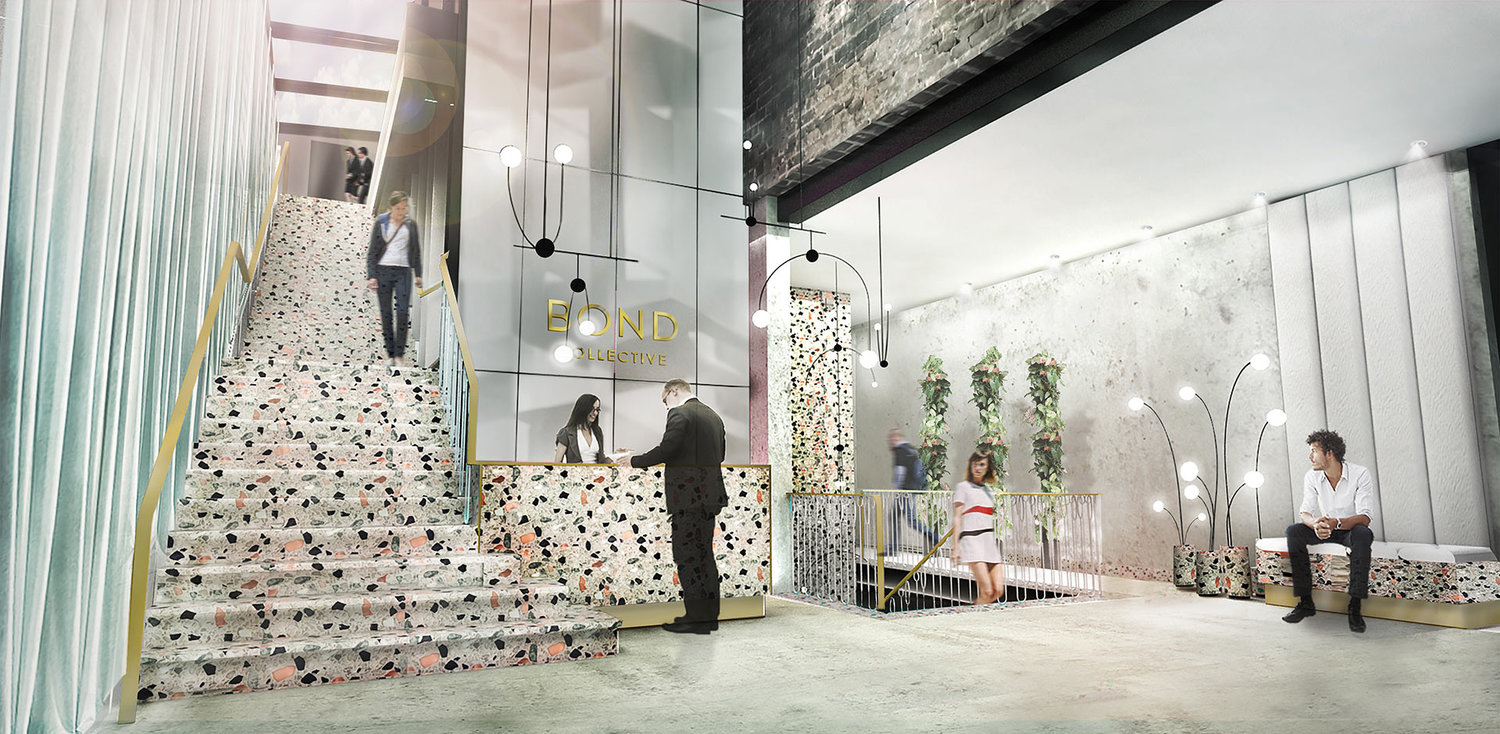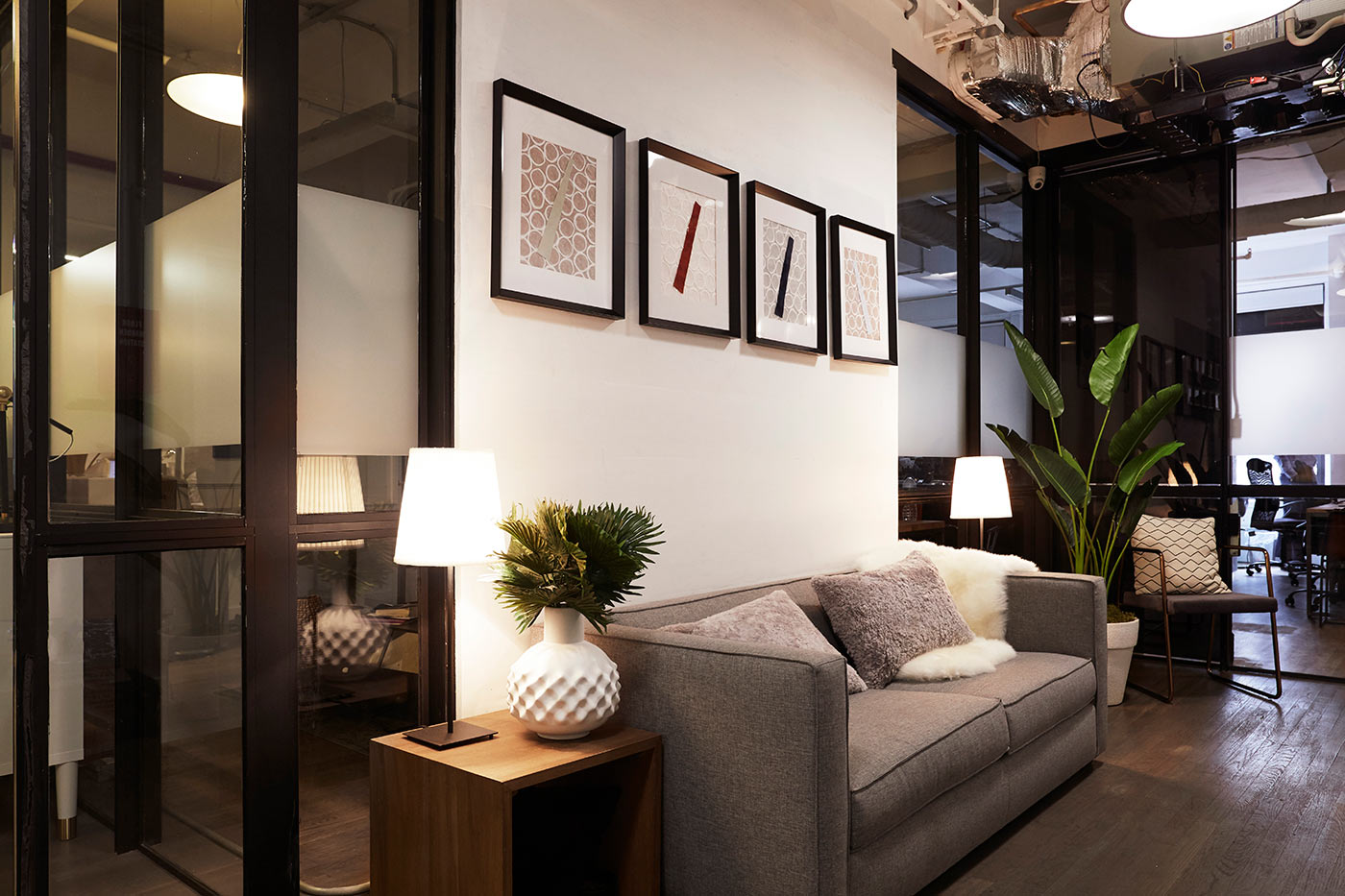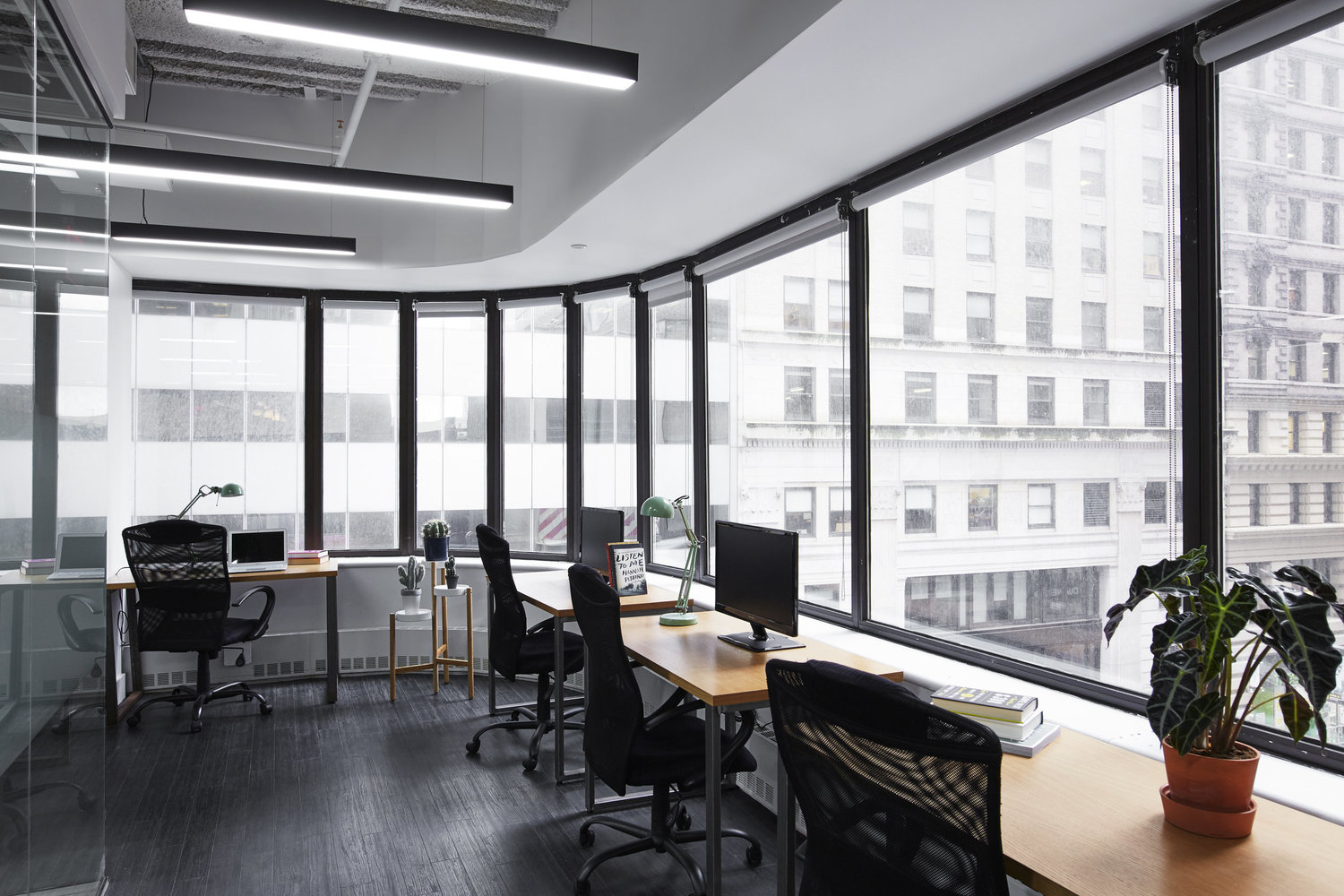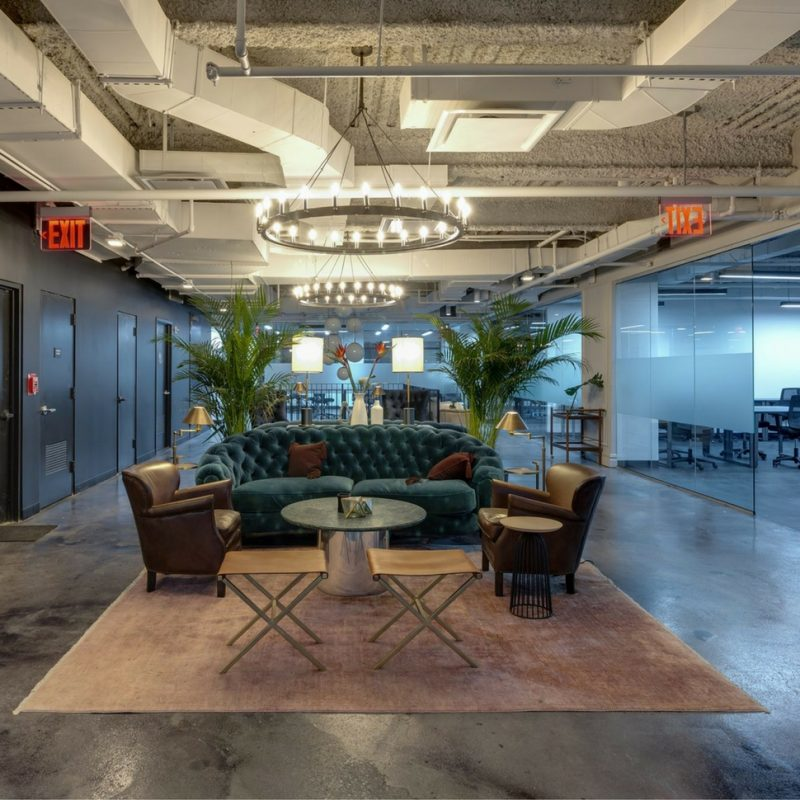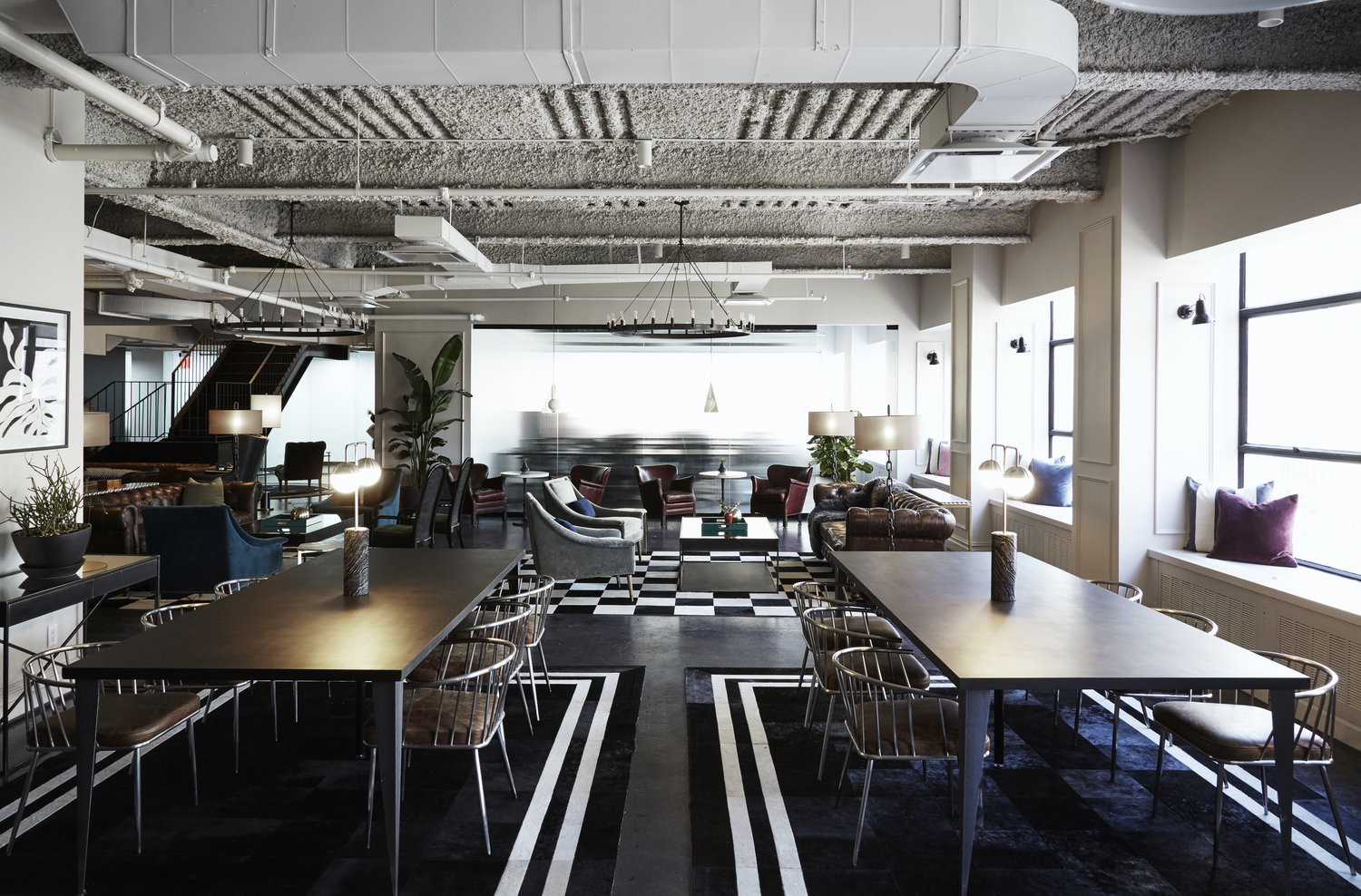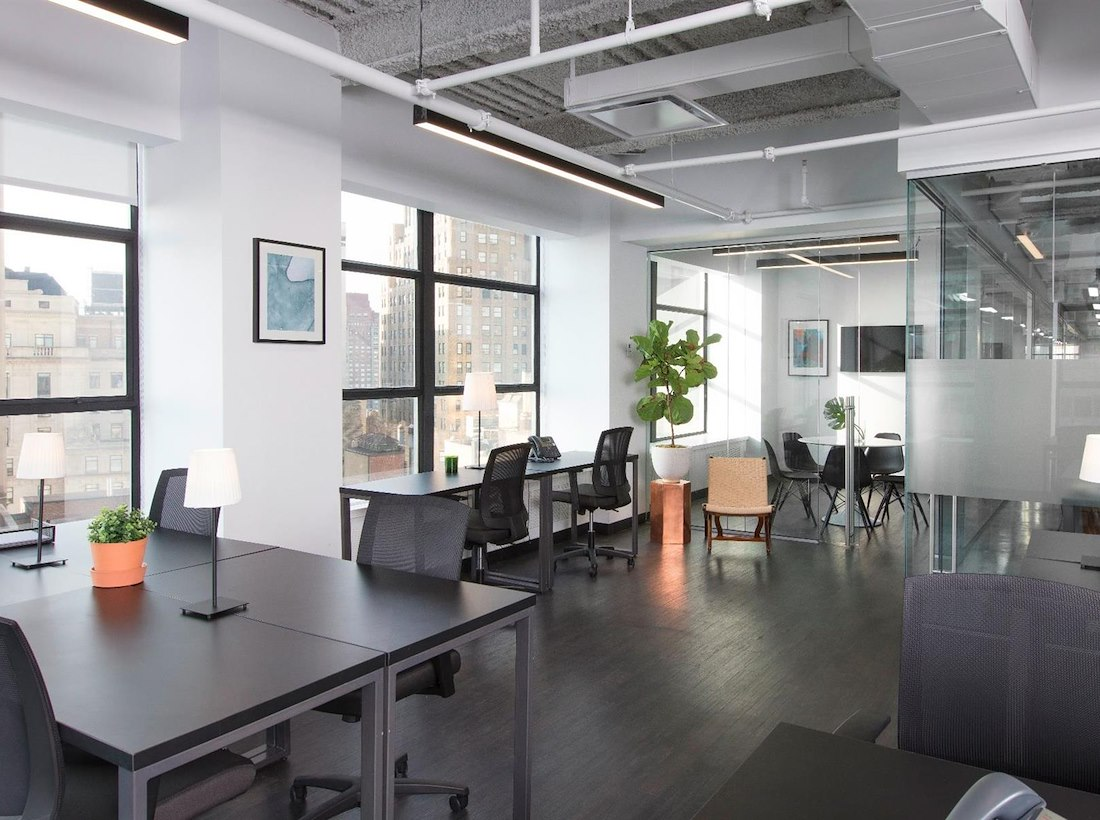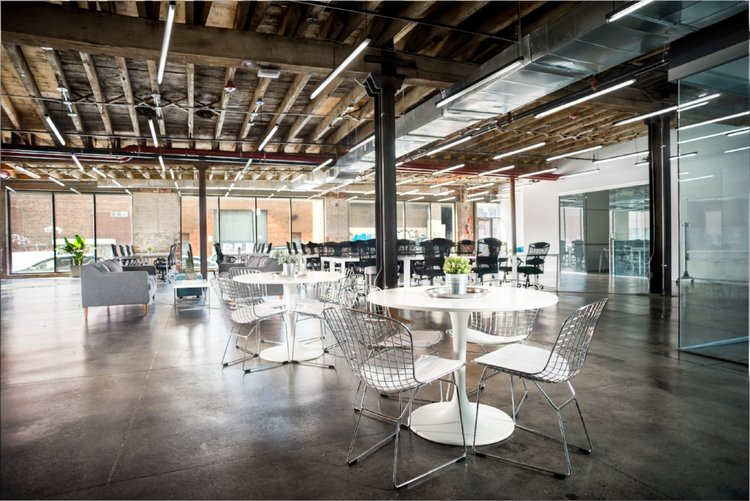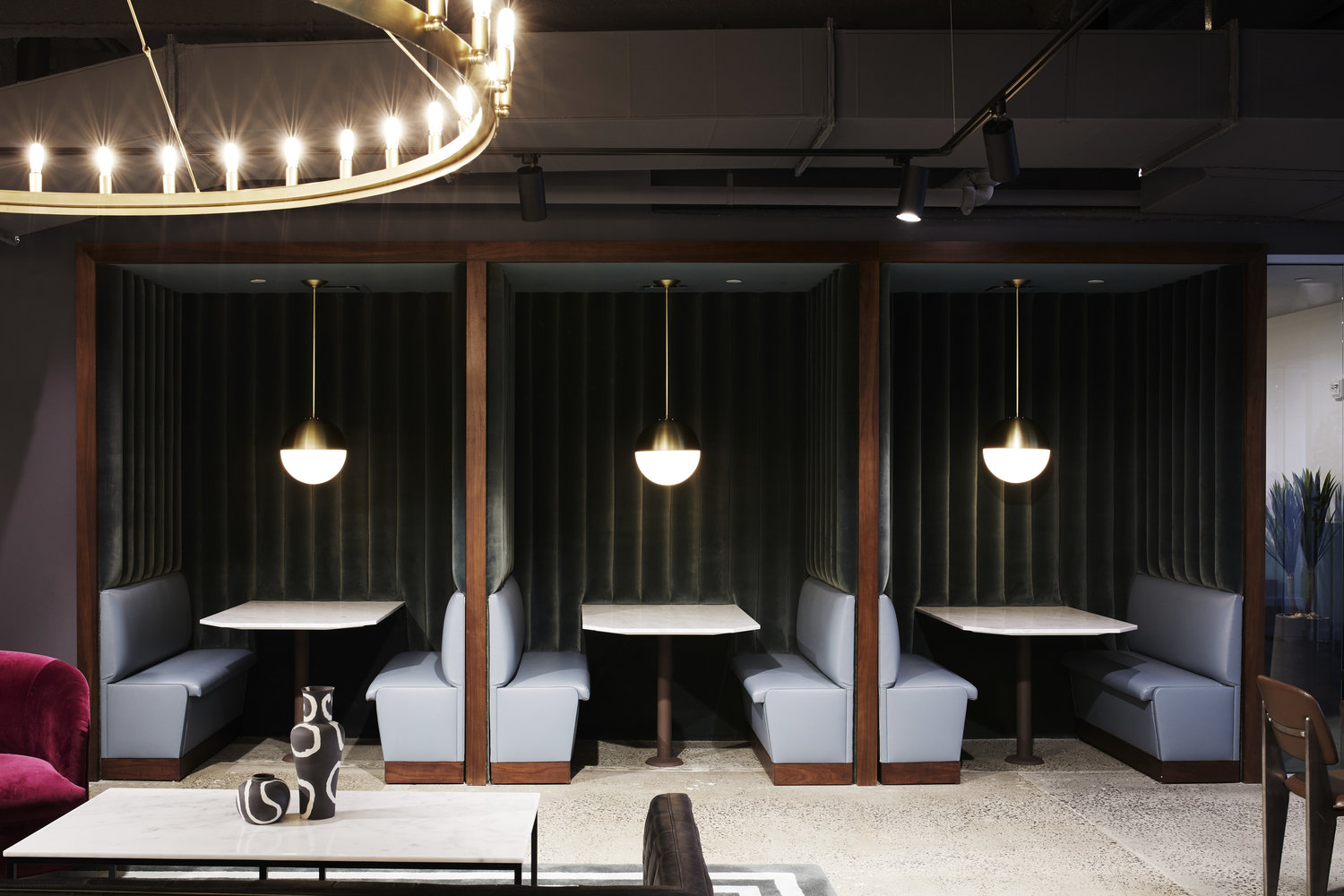By Bond Collective Staff
So you’ve got an idea for a startup. You’ve mapped out a business plan. You’ve secured capital. You’ve assembled your team. Now for the hard part: finding startup office space.
If that wasn’t daunting enough, add in the extra variable of finding startup office space in New York City, and you’ve got a monumental — and potentially expensive — task. What’s a budget-savvy entrepreneur to do? Let us help.
In this article, the office space experts at Bond Collective guide you through everything you need to know to find the best work environment for your startup.
Startup Office Space: Factors To Consider
1) Space
When shopping for startup office space, begin by calculating the minimum size of your working area. Allow for at least 100 square feet per team member. That works out to a 10-foot-by-10-foot space for each person. If your team is ten people strong (including you), you’ll need at least 1000 square feet of office space.
Next, consider what space you’ll need for technology (copiers, printers, servers, etc.), break room, bathrooms, reception, lounge, and storage. Add in those office essentials, and it’s easy to see how quickly you’ll need to double — or even triple — the basic 100-square-foot-per-person startup office space.
2) Occupancy Costs
Many entrepreneurs find the perfect-sized space and fail to factor in the occupancy costs. These hidden expenses include vital infrastructure, such as:
-
Heating
-
Cooling
-
Electrical
-
Water
-
Gas
-
Internet
-
Maintenance
-
Cleaning
Without these, your startup isn’t going anywhere. Be sure to ask for a utilities report before putting up a down payment on your ideal office. Occupancy costs can easily double the price you pay for the space alone.
3) Interior
When you own or lease your startup office space, it’s up to you to decorate the interior. You want your team to feel comfortable and enjoy coming to work, and you want your clients to be impressed with your professional image.
Given these considerations, you might decide to hire a decorator to help you make the right office design decisions. That can get expensive very quickly.
4) Exterior
Don’t forget to set aside money for the upkeep of the exterior of your building. The landlord or property owner will often cover major repairs, but if you need a sign, for example, that comes out of your pocket.
If you want to tweak the facade of your office so that your clients don’t get the wrong impression when visiting, you’ll have another hidden expense of finding startup office space in New York City.
5) Neighborhood
It may not seem like it at first, but neighborhood plays a big role in the success of your startup. It’s the very first thing your clients see, and it provides dining, nightlife, and other services for your team members.
6) Taxes
Depending on the terms you negotiate with your landlord, you may be responsible for property taxes at the end of the year. One common arrangement is for the landlord to pay the property taxes for the first year. After that, you pay part or all for the remainder of the lease.
Be sure to ask about any and all relevant taxes before signing a contract so that you’re not blindsided by surprised fees.
7) Flexibility
Will you need more or less space in the coming months? If your office doesn’t have a conference room, will you need one soon? These questions all speak to the issue of flexibility.
Even though you may have plenty of space right now, it can be incredibly difficult to expand (or contract) a leased office should the need arise. Generate a best- and worst-case scenario for your business, and shop for startup office space with those extremes in mind.
8) Total Lease Amount
Be sure to take into account any interest applied to the terms of your lease and identify any hidden fees before you sign on the dotted line. These extra expenses can have a dramatic effect on the total amount of your lease.
Location, Location, Location
Finding startup office space in New York City that is right for you comes back to the old real-estate adage: location, location, location.
First-time entrepreneurs and managers often skip to the advanced question, “Where should we set up our business?” before answering basic and intermediate questions that could inform their final decision, such as:
-
What neighborhood is best for our company?
-
What do we hope to receive from the area around our startup office space (e.g., nightlife, public transportation, shopping, dining, supplies for the business, etc.)?
-
What is the rent difference between the various areas of the city?
-
What is the availability of office space (e.g., inventory or supply) where we are looking?
-
What is the state of demand in specific areas?
For example, residents of New York City divide the area south of Central Park (Lower Manhattan) into three general areas: Midtown, Midtown South, and Downtown.
Within those three divisions lie numerous smaller neighborhoods, such as:
-
Greenwich Village
-
Tribeca
-
Gramercy
-
Chelsea
-
Times Square
-
And many others…
Each of those neighborhoods comes with its own unique character, desirability, availability, demand, and rent prices. That’s a lot of variables to contend with when you’re looking for startup office space.
Throw in Upper Manhattan, Brooklyn, and The Bronx (each with their own unique details) and you’ve got a long list of potential locations where you could base your burgeoning startup.
Ultimately, though, it all comes back to what’s right for your business. Just because one area of the city is growing by leaps and bounds doesn’t mean you have to find office space there.
Perhaps you prefer the Gowanus or Greenpoint areas in Brooklyn over the Financial District in the southern part of Manhattan proper.
Determine what you, your team, and your business need to work at a high level and then narrow down the office space to the locations that provide those factors.
The Cost Of Leasing Your Own Startup Office Space
Let’s look at a hypothetical situation to get a sense of the effort and cost involved in finding your own startup office space.
We’ll simplify the variables somewhat by assuming that the space is located in a desirable neighborhood like Midtown (e.g., 5 Manhattan West), and that the space is move-in ready (e.g., no redecorating required).
For 2,500 square feet, you’re likely to pay at least $15,625 per month. That breaks down to $2,500 per month for a 400-square-foot office (20’x20’), or $625 per 100 square feet (the minimum per-person space we mentioned earlier). Multiply that by 12 months, and you’ll pay $187,500 per year just in rent for your office space.
Rates may decrease depending on where your startup office space is located, but you’ll still have to factor in furniture, technology, decorations, modifications (interior and exterior), and any infrastructure your business might need that isn’t already established.
If those numbers seem a bit daunting — and perhaps out of reach for your startup — there is a better way to get the office space you need without the sky-high overhead and long-term commitment.
Coworking: The Best Way To Find Startup Office Space
Let’s go back to the eight factors that we discussed at the beginning of this article and see how coworking satisfies them all.
1) Space
Coworking spaces like Bond Collective offer a wide range of square footage to fit all your needs. Take advantage of open-floor-plan coworking spaces, dedicated desks, private offices, and even conference rooms. Coworking office space has it all.
Don’t forget outdoor spaces when considering startup office space. Outdoor spaces give your team members a change of scenery and allow them to get fresh air and recharge their batteries. They also make for inspiring meeting and collaboration areas.
Most leased office spaces don’t provide access to these open-air environments. If they do, they come at a premium that most startups can’t afford.
Coworking spaces, though, are different from regular leased space. Many of Bond Collective’s work environments, for example, connect with a patio, a balcony, or a roof that your team members can frequent should the need arise.
We also furnish these outdoor areas with chairs, small tables, and even a bean-bag-toss game or two. You can’t get that in a regular leased space.
2) Occupancy Costs
At a coworking space, occupancy costs like heating, cooling, lightning-fast Wi-Fi, water, and cleaning are often included in your basic monthly fee.
In a regular leased space, these necessities would be an expense over and above the premium you pay for the space itself.
So in a leased office, you may pay $900/month (likely much, much more) for just the space. You then have to factor in occupancy costs as well as furniture and equipment (see next section). These extra expenses can push your monthly outlay well above what you budgeted for your own startup office space.
With a coworking space, you pay $900/month for a fully furnished private office that includes heating, cooling, Wi-Fi, water, cleaning, and much more.
If your funds are in short supply — or better-served going toward other expenses — then basing your startup in a coworking environment rather than a conventional leased space is the best decision for your business.
3) Interior
With a coworking space like Bond Collective, you don’t have to go through the hassle (or expense) of redecorating. Each and every office environment is decorated to the nines. Your team will love working there, and your clients will be impressed with the professional image your office conveys.
You can’t get that with your own leased space. Just like the occupancy costs we discussed in the previous section, furnishing and decorating your office is an expense over and above what you pay to rent your own space.
Can your startup afford the quality of furnishings and decorations that your business needs to make a good impression on customers, clients, and investors? Can your business spare the downtime necessary to move and arrange the furniture as well as decorate the interior?
At Bond Collective, our team of professional designers has done all of that for you — without the cost and imposition of a typical redo. You and your team can move right in and get to work without having to worry about which type of desks to buy, where to put the copy machine, and what color to paint the accent walls.
4) Exterior
Just as with the interior, there’s no need to worry about the exterior of your startup office space when you opt for a coworking environment. That expense is taken care of for you.
Exterior repairs and improvements are one of the biggest hidden fees you’ll face when leasing your own space. This type of work is often the most complicated because it involves working around electrical and gas utilities as well as ensuring that heat and cool stay in and water and other elements stay out.
You certainly don’t want to tackle facade work on your own, so you’ll have to hire a professional, which can push the cost even higher.
But at Bond Collective, we have our own team of professionals who maintain the exterior elements that give identity, character, and image to your business.
You don’t have to worry about hiring a contractor or which brick would look best. All you have to do is focus on growing your startup into a successful business.
5) Neighborhood
Coworking spaces are located in a wide variety of desirable neighborhoods. Bond Collective, for example, gives you access to Bushwick, 55 Broadway, 60 Broad, Gowanus, and Flatiron, not to mention an event venue (The Mezzanine) in the heart of the Financial District.
What does that mean for your small startup? It means your team can meet for work in any number of locations around the city at no extra expense.
Your base of operations (i.e., where you work most frequently) may be Gowanus in Brooklyn, but imagine you’ve scheduled a meeting with important clients or investors who are staying in Manhattan and will only be in town for one day.
Think about the impression you’ll make when you offer to meet them closer to their hotel in one of Bond Collective’s Manhattan locations. They don’t have to make what can be a long trip across the river, and you can still host them in style in a spacious and professionally decorated conference room.
You can’t do that with a leased space.
6) Taxes
Operating your business out of a coworking space means that property taxes are not your responsibility.
Your team doesn’t have to worry about the accounting process of paying these taxes. Nor do you have to worry about due dates, late fees, penalties, or any of the other stress and strain that comes with dealing with the local, state, and federal governments.
All of that is done for you when you base your startup at a coworking space like Bond Collective.
7) Flexibility
When you lease your own startup office space, you’re locked in for the duration of the contract. That can cause serious problems if your revenue stream dries up. And let’s not forget how difficult it can be to upsize or downsize a leased space.
With a coworking space like Bond Collective, you pay by the month for only what you need. Want to expand or contract? Simply talk to one of our friendly community managers and they’ll make the transition easy.
As a startup, you may begin work with one or two people. During those lean days and months, you can get by just fine with a first-come-first-served desk.
As your startup grows, you hire more team members. It’s February now and both of those new hires will start work in March. You can switch your Bond Collective membership to private offices in just a matter of days and move your new, larger team in without delay.
Suddenly, though, the market takes a downturn and you need to let one of your team members go. A private office doesn’t make sense anymore, so you move your team to dedicated desks within the same location.
You can continue to expand and contract your workspace according to the needs of your team and your business and save money in the process. That’s impossible with a leased space.
8) Rent
This is where the difference between leasing your own space and renting a coworking space is most obvious. With a leased space, you’re on the hook for all the variables on this list. With a coworking space, everything is included in your membership.
Where you might pay $2500 for 400 square feet (e.g., a 20’x20’ office) in your own building, a coworking space of the same size might only cost ⅓ as much (or even less).
9) Amenities
We didn’t mention this variable in the Startup Office Space: Factors To Consider section at the beginning of this article because leasing your own space doesn’t come with any amenities — you have to provide them for yourself at your own expense.
But with a coworking space like Bond Collective, you’ll get amenities such as:
-
Mail and package handling
-
Porter service
-
Mothers’ room
-
On-site handyman
-
Weekly breakfast
-
Exclusive discounts and national partnerships
-
Streamlined billing and booking portal
All of this (and more) for a low monthly fee that is a fraction of what you would pay in rent for a leased space of your own.
Help Your Startup Succeed
Don’t let the difficulty and expense of finding startup office space in New York City prevent you from taking your business to the next level. Give your startup everything it needs to succeed by reaping the benefits that a coworking space like Bond Collective has to offer.
At Bond Collective, you can choose from a variety of temporary office space options, such as:
-
Open-plan coworking spaces
-
Conference rooms for 5-20+ guests
And when you partner with Bond Collective, you don’t just get a beautiful space that fits all your needs and boosts your productivity. Each collaborative workspace also comes with exclusive benefits you can’t find anywhere else.
Whether you rent by the hour, the month, or the year, you’ll get:
-
24-hour access
-
Custom build-outs
-
Comfortable furnishings
-
Access to small and large conference rooms
-
Networking events
-
Daily on-site cleaning
-
Bike storage
-
Rooftop lounge area
-
Photo & sound studio (at Gowanus location)
-
Complimentary fresh fruit
-
Complimentary beer, coffee, and tea
-
Bike storage
-
Private meeting & phone booths
-
Office showers
-
Guest reception and greeting
All of this (and much more) makes Bond Collective a true turn-key solution to all your startup needs. So if you’re looking for spacious, well-appointed startup office space in New York City, Bond Collective is the solution.
Visit any one of Bond Collective’s many locations in the United States, including workspaces in New York, Pennsylvania, Washington D.C., Illinois, Tennessee, and Texas. Or call us today to find out more about everything we have to offer.
And while you’re at it, schedule a tour to experience first-hand how the boutique work environments at Bond Collective can benefit your startup, small business, or large corporation.
To get started or to learn more about coworking space benefits for digital nomads, startups, remote workers, and businesses of all sizes, visit BondCollective.com today.
